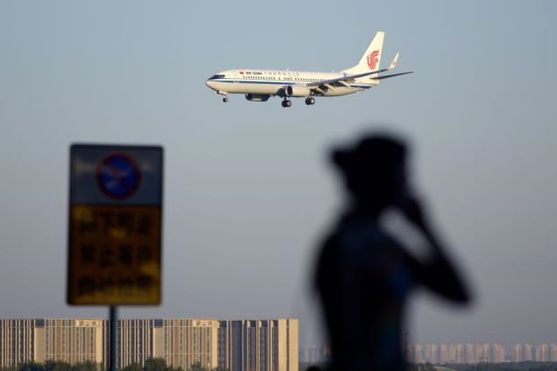What's behind poor passenger behavior?
- By Ember Swift
 0 Comment(s)
0 Comment(s) Print
Print E-mail China.org.cn, January 5, 2015
E-mail China.org.cn, January 5, 2015
A recent string of stories in which Chinese people have acted inappropriately on airplanes has been buzzing around the Internet. There was the man who opened the emergency exit upon arrival so that he could "get off quicker," another man who opened the emergency exit because he "wanted some fresh air" (admittedly a first-time flyer), a third incident in which a couple were seated separately and it escalated into a tussle with the flight attendant, who was then ambushed with a cup of hot noodles to the face, and finally the latest story: three women physically fighting over the disturbance caused by one of the women's crying baby. It goes without saying that the disturbance these women henceforth caused far surpassed the one caused by the innocent infant.
|
|
|
China needs to implement higher fines for air travel passengers who behave badly in order to curb the culture of entitlement that several recent incidents reflect. |
These kinds of incidents force us to ask ourselves a few important questions: what does socially-sanctioned behavior really mean? Does it mean collective conformity or collective courtesy? And in what way does this connect to the modern rejection of conformity by Chinese citizens, even to the point where such crass and uncivilized public performances seem to duck mass scrutiny? Is this justified by aggrandized entitlement or is it just the opposite - too massive a loss of face to even mention? Unfortunately, the answers are not immediately forthcoming.
I first came to this country only seven years ago, but the first thing that struck me about flying to China (and within the country) was how airline passengers in China so blatantly disregard the rules. In a country that is highly regulated on so many levels, I found this contradiction confounding. Before the plane docked at the passenger arrivals bay, fellow travelers were already up and out of their seats (ignoring the flight attendants urging them to sit), overhead compartments were opened and people were on their mobile phones. It was surprising, to say the least.
As a Canadian, some rules have been so consistent over time that they simply seem like a social norm. It was coming to this new country that made me rethink the meaning of "social norm." We Canadians stand in line, for instance, at a check-out counter or a ticket window or a bus stop. We don't cut the line. We know our turn will come, and there is implied patience in our collective adherence to this behavior, even if impatience lurks under the surface of the individual.
Conversely, it is not unusual in China to have to fight for position in these "line-ups." Whoever gets to the window first is considered the next in line. While that may be changing in recent years as a slightly less aggressive system takes hold in places such as train stations, it is not uncommon to have your position "butted into" in China, only to find that the guilty party ahead of you feels no guilt whatsoever.






